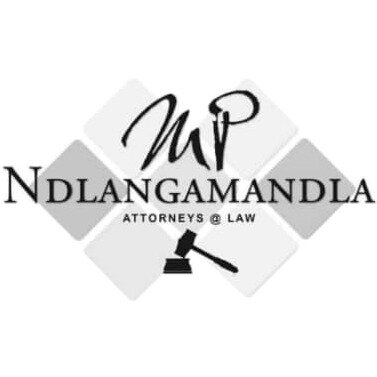Best Banking & Finance Lawyers in Eswatini
Share your needs with us, get contacted by law firms.
Free. Takes 2 min.
Or refine your search by selecting a city:
List of the best lawyers in Eswatini
About Banking & Finance Law in Eswatini
The banking and finance sector in Eswatini is an essential component of the nation's economy, supporting both personal and commercial financial needs. The Central Bank of Eswatini plays a significant role in regulating the industry, ensuring stability, and fostering economic growth. The country's financial sector is primarily influenced by regional standards and the need to adhere to international banking regulations. Local banks, credit unions, and microfinance institutions cater to a wide range of clientele, offering services from personal banking to investment advice. A growing emphasis on digital banking has brought new considerations for legal compliance and customer protection.
Why You May Need a Lawyer
Several situations in the field of banking and finance may necessitate the expertise of a legal professional. Individuals or businesses may require legal help when negotiating loan agreements to ensure fair terms and conditions. Legal guidance is also essential when encountering disputes related to banking transactions or when dealing with issues of insolvency or bankruptcy. Financial regulations can be complex, and legal advice is critical when navigating compliance with local and international banking laws. Additionally, as the fintech sector grows, understanding the regulatory landscape for new digital products becomes important.
Local Laws Overview
Eswatini's banking and finance sector is primarily guided by the Central Bank Order of 1974 and the Financial Institutions Act, which provide a regulatory framework for the operation of financial entities. Key aspects include the licensing of banks and financial institutions, consumer protection laws, money laundering laws, and the regulation of electronic transactions. The laws are designed to protect the integrity of the financial system, promote fair competition, and ensure consumer rights are upheld. Financial institutions must also adhere to guidelines set forth by the Anti-Money Laundering and Counter-Terrorism Financing Act.
Frequently Asked Questions
What types of financial institutions operate in Eswatini?
Eswatini hosts a variety of financial institutions, including commercial banks, microfinance institutions, savings and credit cooperatives, and international banks with regional offices.
Is my money safe in Eswatini's banks?
Yes, banks in Eswatini are regulated by the Central Bank, which ensures they maintain adequate reserves and follow stringent operational standards to protect depositors.
Can foreigners open bank accounts in Eswatini?
Yes, foreigners can open bank accounts in Eswatini, though they might need to provide additional identification and comply with local banking regulations.
What should I consider when taking out a loan in Eswatini?
When taking out a loan, consider the interest rates, repayment terms, and any associated fees. It's advisable to consult a legal expert to review loan agreements.
What are the consequences of loan default in Eswatini?
Loan default can lead to legal action from the lender, negatively impacting your credit score and could potentially result in asset seizure depending on the terms of the agreement.
How does Eswatini enforce anti-money laundering laws?
Eswatini employs rigorous checks and compliance programs under the Anti-Money Laundering and Counter-Terrorism Financing Act to prevent illegal financial activities.
What is the legal framework for fintech companies in Eswatini?
Fintech companies in Eswatini must comply with local financial regulations, including licensing requirements and data protection laws, while fostering innovation within set regulatory standards.
How can I resolve a dispute with my bank?
Initially, address the issue directly with your bank. If unresolved, legal avenues, including engaging a lawyer, might be necessary to mediate or litigate the dispute.
Are there any consumer protection laws for banking services in Eswatini?
Yes, Eswatini has implemented consumer protection laws that ensure fair treatment, clear communication, and the privacy of financial information for clients of banking services.
How do I report suspected financial fraud?
Report any suspected financial fraud to your bank immediately. You can also contact the Central Bank of Eswatini for further assistance and guidance.
Additional Resources
The Central Bank of Eswatini is a primary resource for regulations and financial stability updates. The Financial Services Regulatory Authority provides oversight and additional guidance. Legal firms specializing in banking and finance can offer expert insights and assistance.
Next Steps
If you require legal assistance in banking and finance, consider contacting a law firm specializing in financial services. Additionally, consulting with the Central Bank or the Financial Services Regulatory Authority can provide further understanding and guidance. Prepare any relevant documents and details of your situation to ensure a lawyer can provide comprehensive advice tailored to your needs.
Lawzana helps you find the best lawyers and law firms in Eswatini through a curated and pre-screened list of qualified legal professionals. Our platform offers rankings and detailed profiles of attorneys and law firms, allowing you to compare based on practice areas, including Banking & Finance, experience, and client feedback.
Each profile includes a description of the firm's areas of practice, client reviews, team members and partners, year of establishment, spoken languages, office locations, contact information, social media presence, and any published articles or resources. Most firms on our platform speak English and are experienced in both local and international legal matters.
Get a quote from top-rated law firms in Eswatini — quickly, securely, and without unnecessary hassle.
Disclaimer:
The information provided on this page is for general informational purposes only and does not constitute legal advice. While we strive to ensure the accuracy and relevance of the content, legal information may change over time, and interpretations of the law can vary. You should always consult with a qualified legal professional for advice specific to your situation.
We disclaim all liability for actions taken or not taken based on the content of this page. If you believe any information is incorrect or outdated, please contact us, and we will review and update it where appropriate.
Browse banking & finance law firms by service in Eswatini
Eswatini Attorneys in related practice areas.
Browse banking & finance law firms by city in Eswatini
Refine your search by selecting a city.












